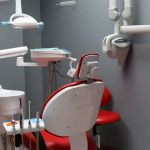Understanding Oral Surgery for Reconstructive Procedures
- 1. What is Oral Surgery?
- 2. Types of Reconstructive Oral Surgeries
- 3. Why Reconstructive Oral Surgery is Needed
- 4. The Surgical Process for Reconstructive Procedures
- 5. Recovery and Aftercare for Oral Surgery
- 6. Real-Life Case: Reconstructive Oral Surgery Success Story
- 7. Take Action: Learn More About Reconstructive Oral Surgery
1. What is Oral Surgery?
Oral surgery refers to medical procedures performed by a specialist, such as an oral and maxillofacial surgeon, to treat a variety of oral health issues. These surgeries are often necessary for addressing problems that cannot be treated with conventional dental procedures alone. Oral surgery may involve the removal of teeth, treatment of jaw problems, or corrective procedures for facial injuries, making it an essential aspect of advanced dental care.
2. Types of Reconstructive Oral Surgeries
Reconstructive oral surgery focuses on restoring the function and appearance of the mouth, teeth, gums, and facial structures. Some common types of reconstructive procedures include:
- Jaw Surgery (Orthognathic Surgery): This surgery corrects misalignments of the jaw and facial bones, improving both function and aesthetics.
- Dental Implants: Replacing lost or damaged teeth with permanent implants to restore function and enhance appearance.
- Bone Grafting: Used to rebuild or replace bone lost due to disease or trauma, often necessary before implants can be placed.
- Gum Grafting: A procedure to treat gum recession, improving both the health and appearance of the gums.
- Facial Trauma Surgery: Repairing injuries to the face or jaw, often after accidents or physical trauma.
3. Why Reconstructive Oral Surgery is Needed
Reconstructive oral surgery is necessary for a range of reasons. It can be required after traumatic facial injuries, for the treatment of congenital defects, or to correct severe dental conditions such as misaligned jaws or tooth loss. In addition to improving functionality, reconstructive surgery can help with the aesthetic aspect, improving the patient's smile and confidence. Some common reasons for reconstructive oral surgery include:
- Trauma or Injury: Accidents or sports injuries may result in damage to teeth, jaws, or facial bones, requiring surgery to repair the damage.
- Congenital Defects: Some individuals are born with facial or jaw abnormalities that can be corrected with surgery.
- Tooth Loss: Losing teeth due to decay, disease, or injury may require dental implants or other procedures to restore the function and appearance of the smile.
- Malocclusion: Misaligned teeth and jaws can lead to difficulty with chewing, speaking, and even breathing, requiring corrective surgery.
4. The Surgical Process for Reconstructive Procedures
The process for reconstructive oral surgery can vary depending on the specific procedure being performed. However, most surgeries generally follow a few key steps:
- Consultation: The first step is an initial consultation with an oral surgeon who will assess your condition, discuss treatment options, and determine the best surgical approach.
- Pre-Surgery Preparation: You may need to undergo specific tests, such as X-rays or CT scans, to prepare for surgery. Your surgeon will also explain how to prepare at home and what to expect on the day of the procedure.
- Anesthesia: Most reconstructive surgeries are performed under local anesthesia, sedation, or general anesthesia, depending on the procedure and complexity.
- Surgery: The surgeon will perform the procedure, which could range from dental implant placement to jaw realignment, depending on your needs.
- Post-Operative Care: After the surgery, you will be given specific instructions for recovery, which may include managing pain, following dietary restrictions, and attending follow-up appointments for monitoring.
5. Recovery and Aftercare for Oral Surgery
Recovery from oral surgery can vary depending on the complexity of the procedure. In general, patients can expect some swelling and discomfort following surgery. Here are some important aspects of the recovery process:
- Pain Management: Pain medication may be prescribed to help manage any discomfort. Following your surgeon's guidelines will help ensure effective pain relief and promote healing.
- Dietary Adjustments: You may be advised to follow a soft-food diet for a period of time after surgery to avoid disturbing the surgical site.
- Oral Hygiene: It is crucial to maintain good oral hygiene, even after surgery. Your surgeon will provide recommendations for brushing and rinsing to prevent infection and promote healing.
- Follow-Up Visits: Regular follow-up visits will be scheduled to ensure proper healing and to address any concerns.
6. Real-Life Case: Reconstructive Oral Surgery Success Story
Consider the case of Mark, a patient who suffered a severe facial injury during a car accident. His jaw was fractured, and several teeth were lost. After consulting with an oral and maxillofacial surgeon, Mark underwent reconstructive oral surgery that included bone grafting, dental implants, and jaw realignment. The surgery not only restored the functionality of his jaw but also improved his facial aesthetics. Mark was thrilled with the results and regained full confidence in his smile and ability to eat and speak normally.
7. Take Action: Learn More About Reconstructive Oral Surgery
If you or a loved one is considering reconstructive oral surgery, it's important to consult with a qualified oral surgeon who can help determine the best treatment plan. Reconstructive surgery can improve both the functionality and appearance of your smile, helping you regain confidence and comfort. For more information about reconstructive oral surgeries and to explore the best treatment options for your needs, visit Dentistry Toothtruth.







 First Choice Dental- Cottage Grove5.0 (65 review)
First Choice Dental- Cottage Grove5.0 (65 review) Dr. Matrullo & Associates4.0 (93 review)
Dr. Matrullo & Associates4.0 (93 review) Florida Dental Implant Institute5.0 (67 review)
Florida Dental Implant Institute5.0 (67 review) Posh Dental4.0 (315 review)
Posh Dental4.0 (315 review) Great Expressions Dental Centers - New City4.0 (362 review)
Great Expressions Dental Centers - New City4.0 (362 review) All Star Orthodontics5.0 (566 review)
All Star Orthodontics5.0 (566 review) The Importance of Oral Health Education During Pregnancy for a Healthy Pregnancy
The Importance of Oral Health Education During Pregnancy for a Healthy Pregnancy Best Tips for Brushing Your Teeth Properly for Healthy Gums: Essential Techniques for Oral Health
Best Tips for Brushing Your Teeth Properly for Healthy Gums: Essential Techniques for Oral Health Why Skipping Dental Checkups Can Lead to Bigger Oral Health Problems
Why Skipping Dental Checkups Can Lead to Bigger Oral Health Problems Advantages of Porcelain Dental Restorations
Advantages of Porcelain Dental Restorations How Can Diabetes Cause Tooth and Gum Problems? Preventing and Managing Oral Health Issues
How Can Diabetes Cause Tooth and Gum Problems? Preventing and Managing Oral Health Issues Healthy Habits for Promoting Good Oral Health and Hygiene: Tips for a Healthy Smile
Healthy Habits for Promoting Good Oral Health and Hygiene: Tips for a Healthy Smile